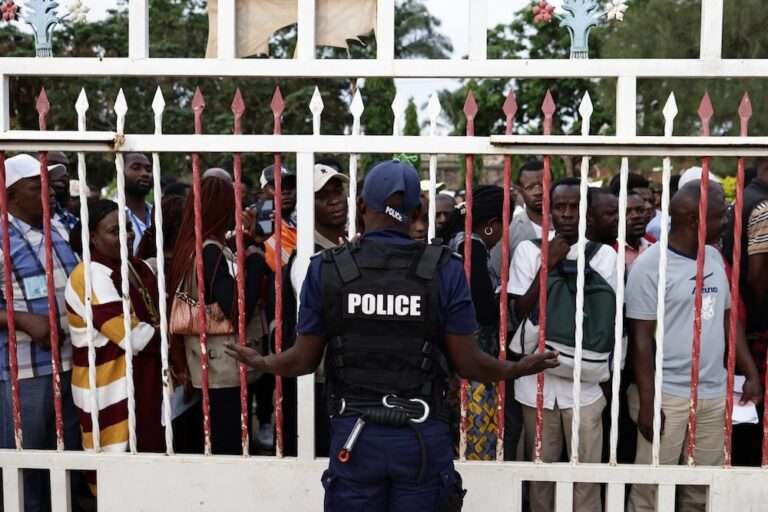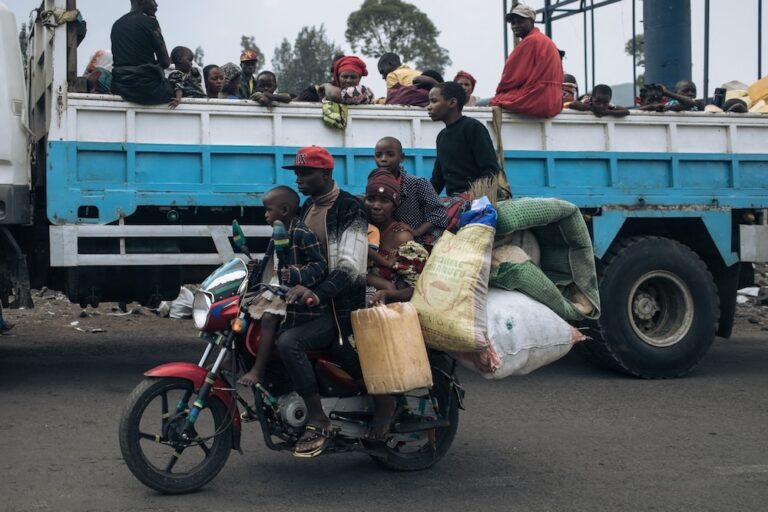The jamming of Radio France Internationale (a French station) and Radio Okapi (a station operated by the United Nations mission in the DRC) began on Friday without any warning or explanation.
This statement was originally published on rsf.org on 9 November 2016.
Reporters Without Borders (RSF) and Journalist in Danger (JED), its partner organization in Democratic Republic of Congo, condemn the jamming of the country’s two most popular radio stations during the past weekend, at a time of extreme political and social tension.
The jamming of Radio France Internationale (a French station) and Radio Okapi (a station operated by the United Nations mission in the DRC) began on Friday without any warning or explanation.
When asked about the jamming, information minister Lambert Mendé accused Radio France Internationale of acting as “echo chamber and press attaché” of the organizers of an opposition meeting. When pressed about Radio Okapi, he referred the questioner to the foreign ministry on the grounds that it is a UN station.
“The jamming of the signals of the two radio stations with the most listeners in the DRC is extremely worrying, while government minister Lambert Mendé’s statements show that the authorities do not deny responsibility,” said Clea Kahn-Sriber, the head of RSF’s Africa desk.
“In the currently fragile political context, this type of censorship could have a profound impact on public order as well as violating the Congolese public’s rights. We ask the country’s authorities to restore the signals of these two radio stations without delay and to stop violating freedom of information.”
The jamming began on the eve of a meeting that had been scheduled by the main opposition parties in Kinshasa although the Kinshasa provincial government has banned all demonstrations ever since those held on 19 and 20 September, which the police dispersed with a great deal of violence.
The police prevented Saturday’s demonstration by moving into the area where it was to have been held and occupying it for the entire day, and by using teargas to disperse groups as they began to gather in other parts of the city.
Ever since the electoral process stalled and mutated into a trial of strength between government and opposition, media outlets that serve as opposition mouthpieces or interview opposition politicians have been exposed to the possibility of closure or reprisals of other kinds.
At least ten media outlets have been closed arbitrarily in the past 24 months. After being closed for a year, two – Vital Kamhere’s Canal Futur Télévision (CFTV) and Jean-Pierre Bemba’s Canal Kin Télévision (CKTV) – reopened in August as a result of political dialogue boycotted by the opposition coalition known as the Rassemblement.
The DRC is ranked 152nd out of 180 countries in RSF’s 2016 World Press Freedom Index.


